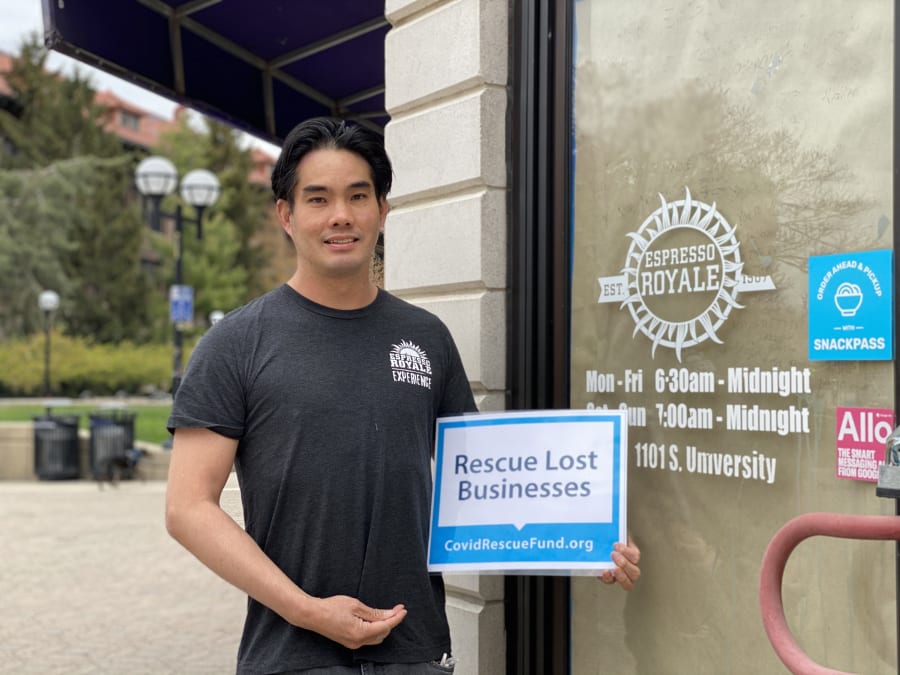ANN ARBOR – One of the most heartbreaking aspects of covering this pandemic has been hearing from local business owners how sales have plummeted in a college town that is usually bustling with shoppers.
David Lin closed two of his businesses in Ann Arbor in the spring of last year because of a sharp decline in sales. The owner of Bubble Island and the CEO of the Midwest coffee chain Espresso Royale, Lin said he saw business change overnight.
Recommended Videos
“Sales dropped 90% during the pandemic,” said Lin.
While restaurants pivoted to carry out and delivery, Lin said his bubble tea and coffee shops saw a sharp decline in demand.
“The last week that Bubble Island was open, it was so depressing,” said Lin. “Usually, we’d do something like $3,000 that day and we did $30. Unfortunately, when you look at those kind of numbers, it’s really hard to think that you’re going to be able to survive such a thing.”
Lin opened Bubble Island 20 years ago on South University, a popular area among students dense with food and drink options. After University of Michigan students went home in mid-March 2020 and classes went online, Lin said walking around the empty campus felt like a scene from a zombie apocalypse movie.

With 20 locations in college towns across the Midwest, Lin watched as business at the 30-year-old Espresso Royale coffee chain -- normally packed with students and community members -- ground to a halt. With more than $100,000 of operating costs to pay each month, a guaranteed slow summer and unpredictable fall loomed as COVID cases climbed.
“I got dragged kicking and screaming to the decision (to close) because there were a lot of lives on the line,” he said. “There were 300 people that worked for these two companies and we had to lay them all off.”
While customers may lose their regular stops into a beloved store or cafe, their favorite items or the atmosphere, the business owner loses so much more.
“It probably took me six months to digest what happened,” said Lin. “But slowly, I was just like, ‘You know, it would really be nice if it would be communicated how terrible it is for people when these businesses close.’ There really wasn’t much out there saying: ‘When you shut down your business, you’re bled the whole way down. You’re sucked dry from all your landlords, suppliers, etc. and there’s an emotional hit because it’s like losing your baby.’”
Unfortunately, Lin’s story is not unique. He hopes his new project will help change the narrative for small business owners across the country.
Lin recently launched the COVID Rescue Fund to help revive small businesses lost to the pandemic.
“Our goal is to bring back 100 businesses,” said Lin, who works with a small team of volunteers to run the crowdfunding site.
Small business owners can apply for a free grant through the site, and patrons can vote for a business they’d like to see come back.
“The government is triaging all the businesses that are alive -- and it makes sense -- but if you don’t make it, you fall off the bus and you are really on your own,” said Lin.
The COVID Rescue Fund is set up to help businesses around the country, though one of its featured businesses is a shuttered yoga studio in Ann Arbor.
Lin said it is a passion project for him and his team and that 95% of funds raised go directly to grantees while 5% go toward the cost of running the site.
“I’ve been hearing a lot of these stories from applicants around the country,” he said. “Someone needs to step up and help.”
To learn more about the COVID Rescue Fund, click here.
This story was first published in the A4 newsletter. To get local stories and insights straight into your inbox, sign up for our newsletter below:

